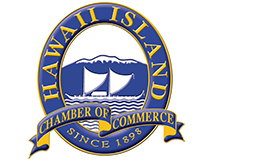UH Hilo’s new and expanded degree programs answer workforce needs, improve life for all
Our mission at the University of Hawaiʻi at Hilo is to challenge our students to reach their highest academic potential, and as an extension of that, to improve the quality of life of the people of our island, state, Pacific region, and the world. Of paramount importance to achieve this mission is to offer programs that answer Hawaiʻi’s workforce needs of today and tomorrow.
Building on our academic portfolio, we have developed three new baccalaureate degree programs: aeronautical sciences, data science, and educational studies, the last of which is going through the accreditation process now. In addition, we are working to expand an existing master degree program in counseling psychology to meet specific island and state needs that arguably impact the quality of life for everyone.
There are two pathways in our new aeronautical sciences program: the pilot pathway to a career as an airline pilot, and the aerial information technology pathway to professional certification as a commercial drone operator. Undergraduates on the drone pilot track are already out in the field using the technology to help address the island’s many natural resource needs such as understanding the impacts of lava flows and invasive species. Professional drone pilots are in demand on the island, in our state, and beyond, and our aeronautical sciences graduates will be well prepared to answer this workforce need.
In our new data science program — the first data science major in the UH System — undergraduate students learn how to study and analyze enormous sets of data, called big data, through statistical measures. Because of its broad application, the field is interdisciplinary, and students choose one of four tracks in which to specialize further: astronomy, business, statistics, or computational. Even before they graduate, students are working closely with research faculty collecting and analyzing data in a wide range of fields, much of it with great local impact such as environmental studies and digital archives of Hawaiian history and language. Our data science students are also helping with campus and county data needs.
Our School of Education currently offers two masters-level degree programs: one to prepare students to become teachers, and one to boost professional growth in practicing educators and licensed teachers. In doing our part to help the UH System expand its teacher education programs across the state, we are currently in the planning stages to expand our program to include a new bachelor of arts in educational studies program, our first teacher licensing pathway for undergraduate students. The UH Board of Regents approved the major in February, and we are moving forward with additional approval and planning stages with the goal to start welcoming students into the program this fall.
Our master’s in counseling psychology program is quickly responding to community and workforce needs both on island and in the state. To help curb Hawaiʻi’s rising demand for mental health services and substance abuse treatment, the program will receive $1.68 million over the next five years to create a new certified substance abuse counselor track and to accommodate more students each year within the master’s program. The funding is from the Alcohol and Drug Abuse Division of the Hawai‘i Department of Health and in partnership with the County of Hawai‘i Office of the Mayor. In addition, faculty are doing tremendous advocacy work in our community and are calling on their partners to support our legislative ask for more faculty positions so that we can enroll even more students and do more to address crucial mental health needs in our state.
In a new collaborative program, we are partnering with UH Mānoa to create a strong pathway for Hawaiʻi Island students who wish to study engineering. They will still need to complete their degrees on Oʻahu, but will get a solid start here in our physics and astronomy program.
An enrollment and workforce discussion, still in its infancy but moving along at a brisk pace, is in regard to microcredentials. Microcredentials are certifications that verify an individual’s competence in a specific skill or set of skills. They allow students to attain proficiencies that can enhance a degree, be a step along the path to a degree or, in some cases, be a substitute for a degree. We plan to work with the county to see what type of credentialed workers they need. There are nearly 32,000 people in our county with some college yet no degree, perhaps some of these credential programs will fill their needs.
I’m excited to see each of these programs moving forward, answering workforce needs and contributing greatly to improving the quality of life of people and their communities near and far.
With aloha,
Bonnie D. Irwin


Recent Comments